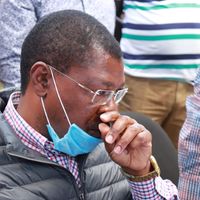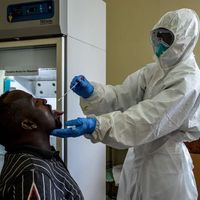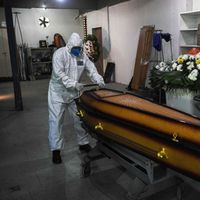
As Kenyans wait on President Uhuru Kenyatta to reopen the country, and jump-start the economy, they will be making adjustments to a new reality presenting in the time Covid-19, which experts say may be around for a long time to come.
From jobs to lifestyle, and how business is conducted, there will be new realignments. From simple greetings, coffee dates, to church and Mosque prayers, things are going to be different as social distancing remains requisite in keeping infection at bay.
For workers, it will not be business as usual, as a majority make have to work remotely. “We need to accept and start living in the new normal. Our lives will never be the same again. We need to adopt these measures to stay ahead of this disease,” Health Cabinet Secretary Mutahi Kagwe said early this month.
With foreign tourists holding back, the sector will be looking to financially hard-up local tourists to keep afloat.
“We have to restart and reset the industry. We also need to embrace the ever-evolving digital world,” said Tourism Cabinet Secretary Najib Balala.
“For example, the younger people will be more likely to travel than the older generation. We will now put an emphasis on local and regional tourism other than international tourism due to the effects of the global lockdown.”
JOB LOSS
Players in the sector are developing protocols to ensure the Sh5.8 billion stimulus package from the government is utilised well.
The International Labour Organisation estimates that 305 million full-time jobs and livelihoods of 1.6 billion workers in the informal sector will be lost globally. Kenya projects the loss of at least 500,000.
“Working from home, working remotely and virtual meetings will become the way of doing business,” said Federation of Kenya Employers chief executive Jacqueline Mugo.
“From our surveys, the reality is that employers are struggling even with the idea of having employees working from home or remotely. We are seeing employers facing challenges in keeping employees motivated and most businesses had taken a downturn or were closing down,” she said.
With the adoption of remote working, the use of technology is bound to increase. But jobs will be lost and challenges abound.
“In the coming days, a number of jobs will be realigned to get the best out of the teams. Challenges will arise in terms of how to engage remote workers,” said Nicholas Kasidhi, head of talent engagement at East African Breweries.
TRANSPORT
As the world reopens, stringent measures are being put in place to contain the spread of Covid-19 as airlines restart operations across the globe. To travel, one will require a Covid-19-free certificate.
Tranport Cabinet Secretary James Macharia said having this certificate will be the norm. “This certification could be soon be required in other sectors, where employees are required to be tested before they can open,” Mr Macharia said.
For those who will be lucky enough to fly, this means more delays as health checks become part of the security protocols, with expensive tickets, as airlines try to recoup their lost seat-per-kilometre revenue.
Already truckers are expected to have a Covid-19-free certificate, but, with the easing of containment measures, this could spill into the other public transport sectors.
But the new normal will be the strict enforcement of social distancing measures, where vehicles will be expected to carry up to 60 per cent of their capacity.
In effect, this would mean a rise in fares, as owners try to cushion themselves from the additional costs and less incomes.
“There is a need for sensitisation not only to matatu crews but also the service users,” said Simon Kimutai, chairman of the Matatu Owners Association.
MANUFACTURING
One of the expected decisions by President Kenyatta is to extend a ban on gatherings of over 15 people, and this is set to hit the entertainment sector hard. Nightclubs will suffer, as most employees will have to stay off work.
While local textile manufacturers have stepped up production of personal protective equipment (PPE) as demand surges and efforts to battle the spread of the coronavirus intensify, they are biggest beneficiaries of the pandemic.
With the Buy Kenya, Build Kenya clarion call, the country is expected to heavily rely on the local manufacturers for the supply of key goods amid capacity challenges.
Industrialisation and Trade Cabinet Secretary Betty Maina hopes that “this will make the country self-reliant, cutting down on over-reliance on imports”.
Fewer Kenyans are visiting hospitals for medical services, mostly due to the fear of contracting the coronavirus and the stigma associated with it.
Even as the country readies to ease containment measures, it is still expected that fewer Kenyans will troop to hospitals, with more of them turning to over-the-counter prescriptions at pharmacies.




